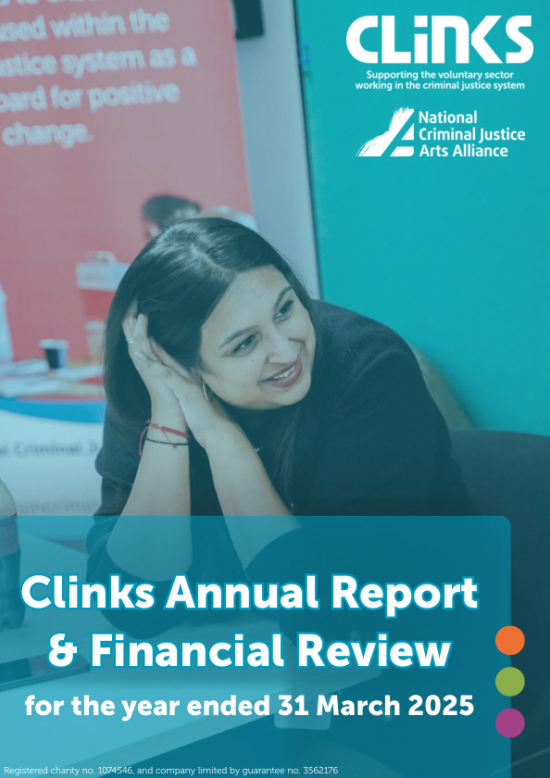In his Evening Standard article on Monday 14th August David Lidington stated that he will be setting up a new unit, ultimately accountable to ministers, that is responsible for making sure the Ministry of Justice respond and react to Her Majesty’s Inspectorate of Prisons reports.
This is significant as prior to the 2017 General Election the Prisons and Courts Bill proposed statutory recognition for Her Majesty’s Inspectorate of Prisons which would have strengthened its scrutiny role. However, following the election the Bill was reduced to a Courts Bill which does not include the original prison reform proposals.
Therefore this new unit, along with the Inspectorate’s refreshed expectations, will be the main mechanism for ensuring that prisons treat those who are held within them fairly and appropriately.
HM Inspectorate of Prisons expectations
The Inspectorate published the latest version of its expectations in July. These are the criteria they use for assessing the treatment of and conditions for men in prisons. Clinks held a series of consultation events with voluntary sector organisations to feed into their development.
The expectations are significant in the current context of overcrowding, extremely high levels of violence, self-harm and drug use and persistently high reoffending rates. Indeed, Peter Clarke, the Chief Inspector of Prisons recently raised serious concerns about conditions in his annual report. He said,
“I have often been appalled by conditions in which we hold many prisoners. Far too often I have seen men sharing a cell in which they are locked up for as much as 23 hours a day, in which they are required to eat all their meals, and in which there is an unscreened lavatory,”
“On several occasions, prisoners have pointed out insect and vermin infestations to me. In many prisons I have seen shower and lavatory facilities that are filthy and dilapidated, but with no credible or affordable plans for refurbishment. I have seen many prisoners who are obviously under the influence of drugs.”
He also made the point that prison reform will not succeed unless the violence and the prevalence of drugs in jail are addressed and prisoners are unlocked for more of the working day.
So what’s in the expectations?
Clinks’ response to the consultation was based on workshops attended by 95 individuals representing 70 voluntary organisations and focused on three areas – partnership working with the voluntary sector, equalities and whether the proposed expectations missed anything.
- Partnership working with the voluntary sector
Those who attended our workshops felt that the draft expectations published for consultation should better emphasise partnership work and they provided significant detail about how the voluntary sector can be supported to work in prisons.
The final expectations reflect this in specifying two indicators specifically related to this under the following expectation: Prisoners’ needs are met by coordinated rehabilitation services.
These indicators are as follows:
- Relevant voluntary and community sector organisations are supported to work with prisoners
- A named manager is responsible for coordinating the work of voluntary and community sector organisations.
The wording of these particular indicators has been strengthened from the draft document which referred to ‘effective links’ with voluntary and community organisations.
While our consultation response provided much greater detail on what this could look like in practice, we recognise the need for the Inspectorate’s expectations to be practicable. Clinks’ ‘Voluntary sector co-ordination pilot project’ will be publishing its evaluation report later this year and will provide a range of recommendations for how prisons can practically do this. We will disseminate this to relevant prison, Ministry of Justice and Her Majesty’s Prisons and Probation Service staff.
- Equalities
The final version of the expectations strengthens a key point around equality and diversity by the addition of the italicised words below:
The prison demonstrates strong leadership in delivering a coordinated approach to embedding equality considerations in regimes; eliminating all forms of unlawful discrimination and promoting inclusion.
While this broadens the scope of the expectation somewhat, compared to the draft expectations, it doesn’t go as far as to meet the concerns raised by organisations at our consultation events. In particular, attendees felt that expectations in this area should be minimum criteria rather than aspirational, They also raised points about prisons actively profiling their population and in response ensuring specialist support for people from equalities groups is available.
The final expectations do however specify a definition of young adults which was something organisations felt was missing from the consultation draft.
- Other additions – the arts and rehabilitation
Arts organisations that attended our workshop, and the written response submitted to HM Inspectorate of Prisons by the National Criminal Justice Arts Alliance, voiced disappointment that the draft expectations said so little about the importance of arts activities in providing opportunities for self-development, reflection and creative self-expression, as well as contributing to security.
In response to this a new expectation has been included under the purposeful activity section:
Prisoners can access creative activities which promote learning, wellbeing and support rehabilitation.
Attendees at our workshops also questioned why there was no significant mention of rehabilitation in the expectations. In the final version of the expectations this has been addressed by renaming Section 4 to ‘Rehabilitation and release planning’ as suggested by our response.
Conclusion
Clinks is extremely pleased that some of the key points raised by organisations at our workshops have been recognised by the Inspectorate and included in the final version of the expectations.
Issues raised by organisations at our consultation workshops were wide ranging and extremely comprehensive and there are a number of recommendations that the Inspectorate hasn’t addressed. Clinks will continue to engage with HM Inspectorate of Prisons on an ongoing basis about these issues.
We hope that the refreshed expectations will support the Inspectorate to improve prison conditions. We note that organisations at our workshops felt that while the draft expectations were very comprehensive they should be a baseline set of standards. Instead the final document represents aspirational expectations and indicators that describe evidence that may show they are being met. Therefore although they are welcome, there is a danger that the expectations are not robust enough to meet the challenge of addressing the current crisis in prison conditions. However, the new Ministry of Justice unit announced yesterday will hopefully go some way towards addressing this by providing a mechanism to hold the Ministry of Justice accountable.
What's new
Blogs
Anne Fox CEO of Clinks to stand down after a decade of service
Latest on X
The role is for a leader from an organisation focused on racially minoritised people, with expertise in service delivery, policy, advocacy, or related areas in criminal justice. Racial disparities are present at every CJS stage. This role ensures these voices are central in shaping policy to help address and eradicate them. Apply by Mon 18 Nov, 10am. More info: https://www.clinks.org/voluntary-community-sector/vacancies/15566 #CriminalJustice #RR3 #RacialEquity

